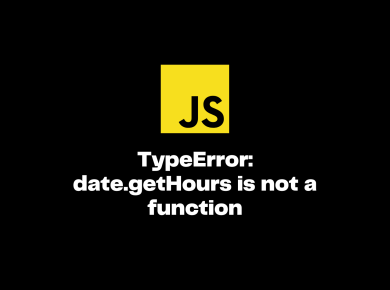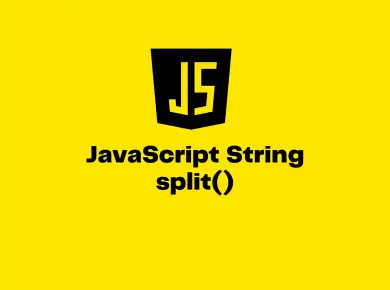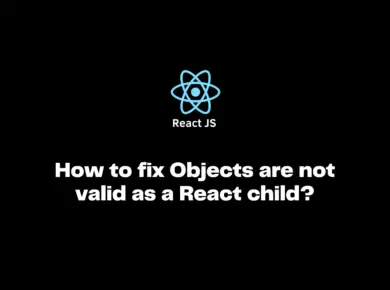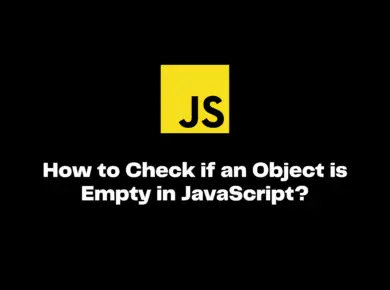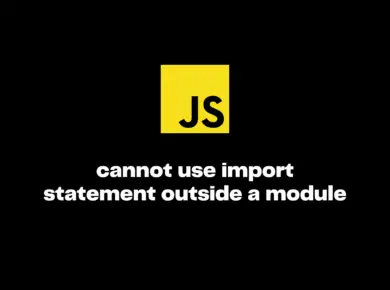If we call the getTimedate. is not a function.getTime
In this tutorial, we will look at what is TypeErrror: date.getTime
What is TypeError: date.getTime is not a function error?
getTimeLet us take a simple example to demonstrate this issue
// Declare and store the data into a variable
const date= Date.now();
// Prints the UNIX epoch
console.log(date);
// get the time from the given date
const output = date.getTime();
Output
1655113057893
TypeError: date.getTime is not a function
In the above example, we have declared a variable and we have stored the UNIX epoch timestamp as the integer value into it. The Date.now() method returns the UNIX timestamp which is of type number.
In the next statement, we call the Date.prototype.getTime() method on the value of the type number, and hence we get a TypeError: date.getTime is not a function.
We can also check the variable type using typeof() to confirm the datatype.
// Declare and store the data into a variable
const currDate = Date.now();
// Prints the UNIX epoch
console.log(currDate);
console.log("The type of variable is",typeof currDate)
Output
1655113670272
The type of variable is numberHow to fix TypeError: date.getTime is not a function error?
The Date.prototype.getTime()
There are two ways to fix this issue in JavaScript.
Solution 1: Convert the value into a Date Object
We can easily resolve the issue by converting the value into a Date object before calling the getTime() method.
If we know the value can be converted to a valid Date object, then we can use the Date() constructor in JavaScript that returns the Date object.
Let us take an example to resolve the issue using the Date()
// Declare and store the data into a variable
const currDate = Date.now();
// Prints the UNIX epoch
console.log("Unix time stamp of current date", currDate);
// Converts timestamp into Date Object
const dt = new Date(currDate)
// Print the time in Unix timestamp
console.log(dt.getTime())
Output
Unix time stamp of current date 1655154305208
1655154305208If the Date is invalid
If called with an invalid date string, or if the date to be constructed will have a UNIX timestamp less than -8,640,000,000,000,000 or greater than 8,640,000,000,000,000 milliseconds, it returns a Date object whose toString() method returns the literal string Invalid Date.
// Declare and store the data into a variable
const currDate = "Hello World";
// Converts date like object into Date Object
const dt = new Date(currDate)
// Print the UNIX timestamp
console.log(dt.getTime())
Output
Invalid DateSolution 2 – Performing the type check
We can also perform a type check on the variable to check if it’s a valid date object and has it has the property of type getTime before calling the getTime()
There are 3 logical expression that we need to evaluate.
- First we need to check if the variable stores a value which of type object
- Once the first condition passes we need to check if the object is not
null - Last we need to ensure if the object contains getTime property.
Example – Type check using if/else
// Declare and store the data into a variable
const currDate = "2022/05/15 20:30:45";
// Converts date like object into Date Object
const dt = new Date(currDate)
if (typeof dt === 'object' && dt !== null && 'getTime' in dt) {
console.log("The data type is", typeof dt)
// Print the Unix timestamp
console.log(dt.getTime())
}
else {
console.log("Invalid Date Object")
}
Output
The data type is object
1652626845000Conclusion
The TypeError: date.getTime is not a function occurs if we call a getTime() method on the object that is not of type Date object. We can resolve the issue by converting the value into Date Object using Date() constructor before calling the getTime() method or by performing a type check using typeof to see if the object is of type getTime.
